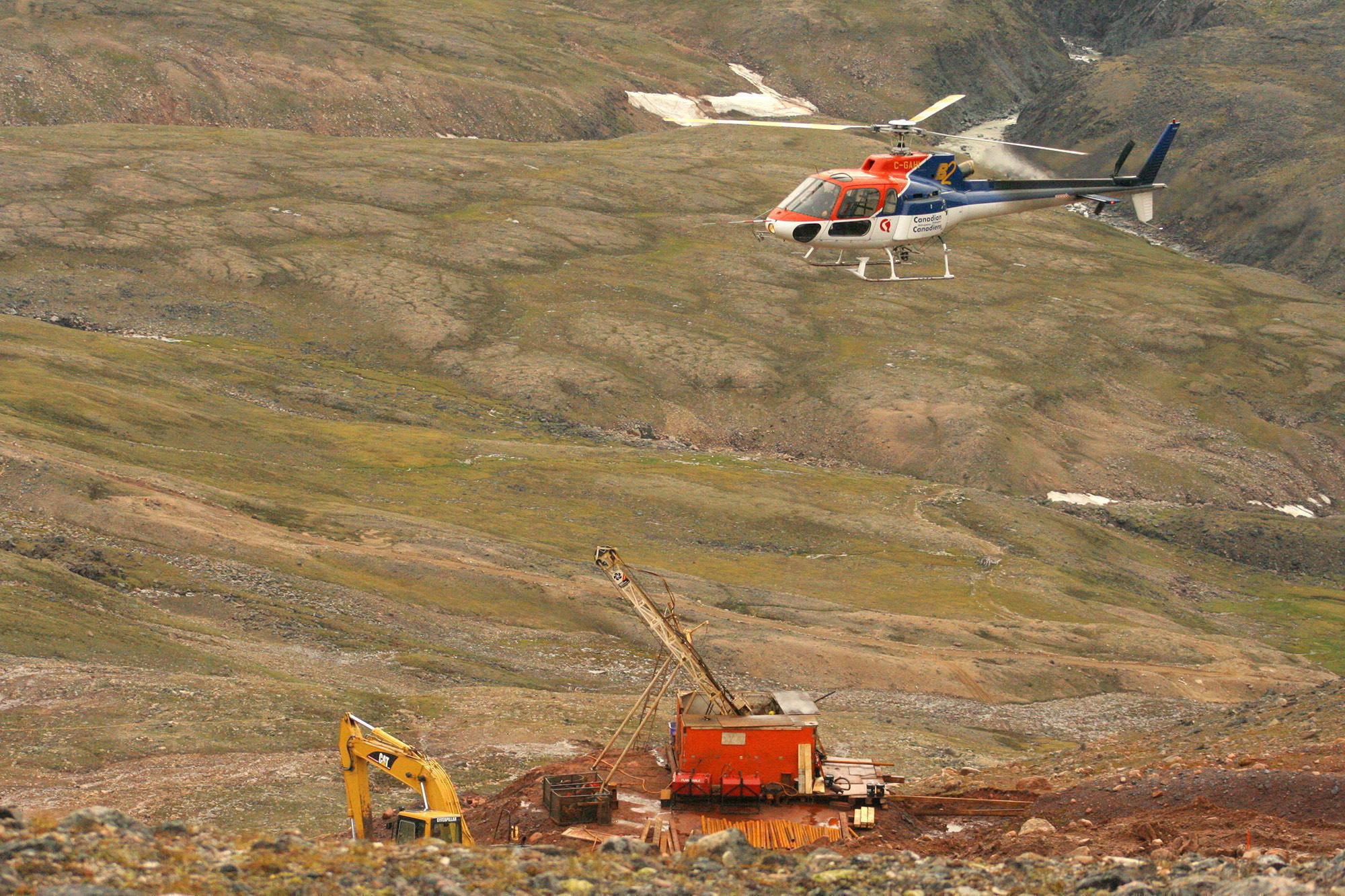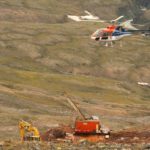Hearing on Baffinland mine expansion ends, board to make recommendation

IQALUIT, Nunavut — The hunters and trappers association in the community closest to an iron ore mine on the northern tip of Baffin Island doesn't want to see the mine expand its operations, saying the effects have already been palpable.
Baffinland Iron Mines Corp. is seeking to expand its Mary River iron ore mine near Pond Inlet by doubling its annual output from six to 12 million tonnes.
Speaking on the last day of a public hearing on the mine's proposed expansion, Enookie Inuarak of Pond Inlet's hunters and trappers association said the mine's effects on the surrounding environment "have already been significant."
"We have seen impacts on marine mammals already ... We are exhausted by constantly having to give evidence of impacts of Baffinland's operations on Inuit," he said.
Inuarak also said many members of his community are divided on whether they want the expansion to go ahead. One the one hand, the mine provides residents with jobs, while on the other hand it could have negative effects on hunting, he said.
"We don’t want to sacrifice our culture and traditions for the sake of money and benefits. We ask other communities not to sacrifice us."
The public hearing on the mine's proposed expansion finished on Saturday in Iqaluit, two years after it began. The Nunavut Impact Review Board, the territory's environmental assessment agency, heard from representatives from Nunavut communities, the Nunavut government, the Government of Canada and environmental groups.
The mining company wants to build a 110-kilometre railway to transport the ore from the mine to the ocean. It would be the most northern railway in Canada and the first in Nunavut.
The community of Pond Inlet, which is about 176 kilometers from the mine, has opposed the proposal and protested against it earlier this year by blocking the mine's road and airstrip.
The proposed expansion also includes a benefits agreement between Baffinland and the Qikiqtani Inuit Association, which represents Inuit on Baffin Island. But Inuarak said he believes the benefits won't outweigh the cost of the expansion's effects on the animals harvested around Pond Inlet.
"When you talk about benefits, it sounds like you’re trying to buy us," Inuarak said. "Our culture and our traditions are not for sale."
Other North Baffin communities near the mine are concerned about what effects the proposed expansion would have on wildlife.
Alan Kormack from Clyde River told the board he does not support the expansion.
"Baffinland has not convinced us that this project will be safe," Kormack said. "Our wildlife and sea mammals are being depleted. They’re not around anymore."
Baffinland has said it can't continue to be profitable without increasing production.
The hearing resumed on Monday after it was suspended in April because of a COVID-19 outbreak in Iqaluit. It has stopped and started several times, having originally began in November 2019.
On Nov. 6, 2019, two years ago today, the hearing was abruptly adjourned when Nunavut Tunngavik Inc. put forward a motion to suspend the proceedings. At the time, the Nunavut Land Claims organization argued Inuit had not been properly consulted on the project.
All interveners have until Nov. 22 to submit written closing statements to the Nunavut Impact Review Board, which will then make a recommendation to federal northern affairs minister Dan Vandal whether to approve the proposed expansion. Vandal will then have the final say on whether the expansion will go forward.
This report by The Canadian Press was first published Nov. 6, 2021.
---
This story was produced with the financial assistance of the Facebook and Canadian Press News Fellowship.
Emma Tranter, The Canadian Press




